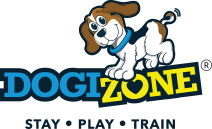Puppy Training For Success
There are so many great things about getting a new puppy, but your little one is also a big responsibility. You must learn how to guide your puppy so that he or she will become a good canine citizen. Remember the old saying ‚ an ounce of prevention is worth a pound of cure.‚
Getting a new puppy can be similar to having a new baby: long nights of getting up every couple of hours, constant clean-up and the challenge of teaching them how to behave in a socially acceptable manner. There are many components to raising the perfect puppy, and it’s not always easy.
As a trainer, I have discovered three things that greatly simplify this process: First, remember that a tired dog is usually a good dog. Exercising Fido on a daily basis will help take the edge off. For a lot of breeds, though, physical exercise is not enough; most need a bit of mental stimulation to keep them busy. I like to teach my puppy tricks at a young age. This teaches him to problem solve and helps me to bond with my puppy. Remember to not give affection just because the puppy is cute; make him earn it by completing tasks.
Selecting the right nutrition for your pup can be a daunting task. Puppies need to eat a balanced diet to grow properly and maintain steady energy levels throughout the day. I recommend you ask your veterinarian, trainer and/or breeder what they feed their dogs, and if they would recommend that food for your puppy. Most pet professionals take their dog’s diet very seriously, and they can recommend the best pet foods on the market.
Training your young puppy involves many different things. At the fragile age of 7 weeks to 5 months old, socializing your dog is of the utmost importance. Exposing him to new sights, sounds and movement at this age will make the difference between having a happy, outgoing mature dog and a fearful, shy one. Making sure that your dog is safe and has good experiences is what socializing is all about. Take your puppy to the park to see children playing, bicycles and other activities. Introduce your puppy to all sorts of people, other animals and household appliances.
Beyond socializing, training should include handling your puppy so that he gets used to exams and grooming; housebreaking; crate training; and establishing routines and a schedule. At around 14 to 16 weeks, your puppy can begin some type of obedience training so that he can communicate properly with you and listen well. You won’t want your dog to jump on guests or not come when you call. Once you are able to control your dog’ss behavior‚ on and off the leash‚ will be a wonderful companion.
Andrew Fraser is president and training director for Canine Obedience Unlimited, a full-service training and boarding facility located in Urbana. Fraser is a Master Trainer graduate of the National K9 School for Professional Dog Trainers, a No Limitations graduate of Sit Means Sit and a certified first aid and CPR instructor from Pet Tech 240-793-5787.
